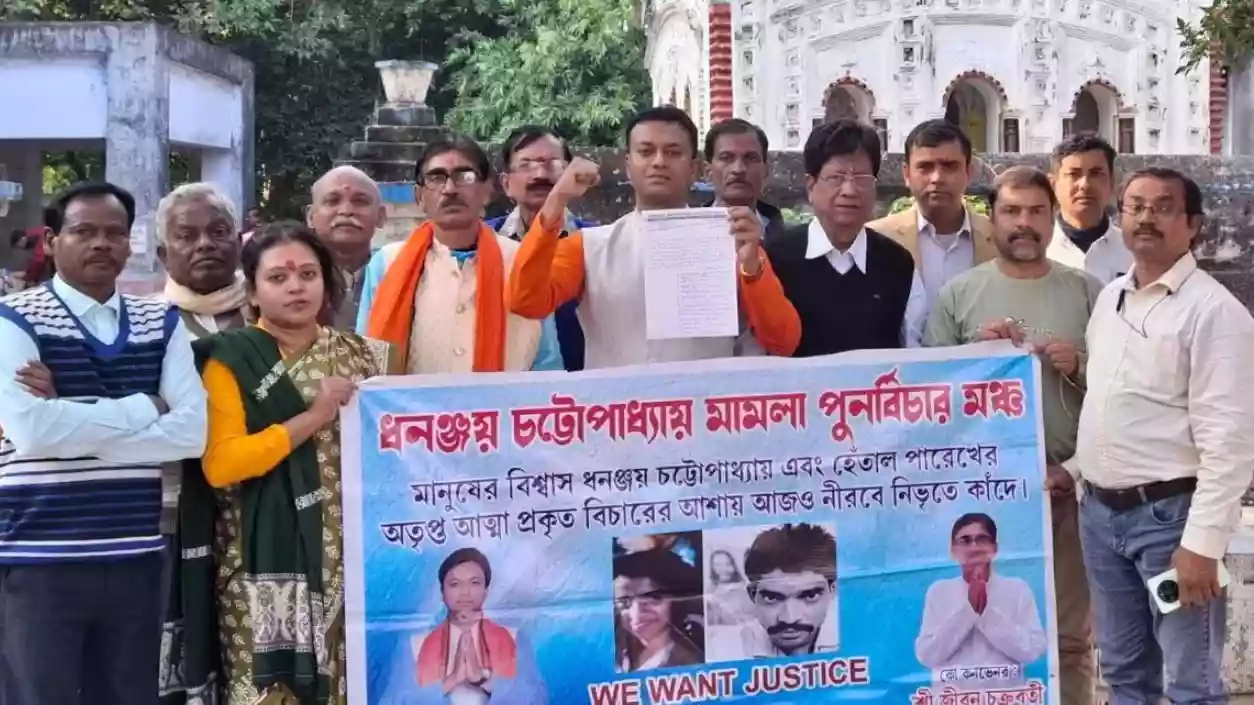.gif)
.gif)

The 1990 Hetal Parekh murder case, which resulted in the execution of Dhananjay Chattopadhyay, has once again come into the spotlight with a demand for reopening the investigation. Hetal Parekh, a prominent Kolkata resident, was brutally murdered on March 5, 1990. Dhananjay Chattopadhyay, a security guard employed at her residence, was arrested and convicted for the crime. Chattopadhyay was sentenced to death after being found guilty, and despite protests from local residents, he was executed on August 14, 2004, after serving 14 years in prison.
The demand to reopen the case comes from the residents of Shatna, West Bengal, who have consistently argued that Dhananjay Chattopadhyay was wrongfully convicted. They assert that he was not responsible for the murder of Hetal Parekh, and that flaws in the investigation and trial led to a miscarriage of justice. This argument has been voiced repeatedly by the locals, who believe that a retrial could bring to light significant oversights in the original proceedings.
In response to this, a movement has been launched, with residents gathering signatures to petition for the case to be reopened. The petitioners plan to submit the signatures to President Droupadi Murmu, urging her to intervene and instruct for a fresh review of the case. Local activists involved in the movement have emphasized the need to rectify what they perceive as a judicial error, asserting that a review of the case could provide clarity on the facts surrounding the murder and bring justice to Dhananjay Chattopadhyay.
Although reopening the case would not reverse Chattopadhyay’s execution, supporters of the movement argue that proving his innocence could correct historical wrongs and highlight flaws in the judicial system. They contend that a retrial could also serve as a critical step toward ensuring that future convictions are not based on incomplete or faulty evidence. These supporters have made it clear that their aim is not only to seek justice for Chattopadhyay but also to call for broader judicial reforms to prevent wrongful convictions in the future.
The movement has gained traction across West Bengal, with people from various districts expressing their support. A significant number of locals, including activists and legal experts, have pledged to continue their efforts until the case is reconsidered. The petition for reopening the case has already been launched, and the movement is gaining momentum as more people join in the call for a review of the 1990 Hetal Parekh murder case.